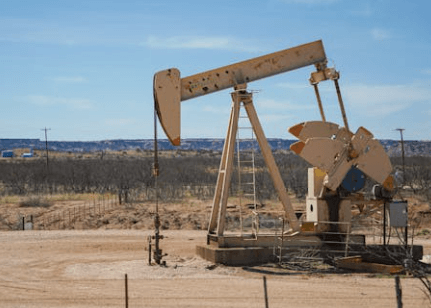Discovering oil on your property can be life-changing, transforming your land into a valuable resource and providing potential financial gain. Understanding the specific geological features and legal considerations unique to Florida is crucial in your quest to find oil on your land in Florida. Read on as we delve into the intricacies of how to find oil on your land in Florida, covering everything from initial research to the necessary steps to take if you believe your land has oil potential. Whether you’re a landowner curious about the prospects beneath your feet or someone seriously contemplating investing in oil exploration, this guide will equip you with the knowledge and resources to get started.
When exploring oil potential on your land in Florida, the insights of experienced real estate investors like Steve Daria and Joleigh can prove invaluable. Steve and Joleigh have successfully navigated the complexities of land investment and have a keen eye for identifying lucrative opportunities beneath the surface. Learning from their expertise can significantly enhance your chances of uncovering oil on your property.
Understanding Oil Deposits in Florida
Oil deposits are pockets of hydrocarbons trapped beneath the earth’s surface, formed from ancient organic materials subjected to heat and pressure over millions of years.
In Florida, these deposits are often located deep underground, embedded within complex geological formations.

The state’s geology, predominantly characterized by limestone formations and sedimentary layers, creates both opportunities and challenges for oil exploration.
The Significance of Oil Exploration
Oil exploration is a crucial preliminary phase before drilling can begin, as it helps identify and assess potential oil reserves beneath the earth’s surface.
This process involves utilizing a range of techniques, including geological surveys to study rock formations, seismic studies to map subsurface structures, and advanced geophysical methods to detect the presence of hydrocarbons.
For property sellers and real estate investors, understanding and engaging in this process can significantly enhance the value of their land by identifying potential lucrative oil reserves.
Tools and Technologies to Find Oil on Your Land in Florida
Various advanced tools and technologies are utilized to find oil on your land in Florida. These include:
Seismic Reflection
Seismic reflection involves sending sound waves into the ground and measuring their echoes to create detailed images of subsurface formations.
By analyzing these images, geologists can identify potential oil reservoirs and understand the geological structures present below the surface.
Magnetic Surveys
Magnetic surveys detect variations in the Earth’s magnetic field caused by different rock types and mineral deposits.
These variations help geologists map the distribution of magnetic materials, which can indicate the presence of oil-bearing formations or guide further exploration efforts.
Gravitational Surveys
Gravitational surveys measure variations in the Earth’s gravitational field, which can reveal differences in rock density associated with oil-rich areas.
By analyzing these gravitational anomalies, geologists can infer the presence of subsurface oil deposits and assess their potential economic viability.
Get Started: Get Your Cash Offer Below…
We are direct land buyers. There are no commissions or fees and no obligation whatsoever. Start below by sharing where your property is and where we can send your offer…
Legal Considerations and Permits
Before you can start drilling and find oil on your land in Florida, it’s crucial to understand the legal landscape.
In Florida, oil exploration and extraction require various permits and adherence to state regulations.
Consulting with legal experts can help ensure compliance and smooth operation.
Hiring Professional Geologists
Professional geologists are essential in oil exploration, offering specialized expertise in analyzing geological data and conducting comprehensive field studies.
Their role includes interpreting seismic data, evaluating soil and rock samples, and assessing the geological structure of the land to identify potential oil reserves.
Experienced geologists also provide valuable recommendations based on their findings, helping to design effective exploration and drilling strategies.
Conducting Preliminary Surveys
Preliminary surveys are crucial initial assessments designed to pinpoint promising areas for more detailed exploration and drilling.
These surveys typically involve geological mapping to chart the surface and subsurface features, soil analysis to detect potential indicators of oil presence, and other field studies to gather preliminary data.
By conducting these surveys, geologists can identify areas with the highest potential for successful oil discovery, reducing the risk of investing in less promising sites.
Seismic Studies Explained
Seismic studies are a key component of oil exploration.
They involve generating seismic waves and recording their reflections from subsurface formations.
These reflections help create detailed images of potential oil reservoirs, guiding further exploration efforts.
Analyzing Geological Data
Once seismic data is collected, it must be meticulously analyzed.
Geologists use specialized software to interpret the data, identifying structures that may contain oil.
Precise data analysis is vital for making informed drilling decisions.
Drilling Test Wells
Drilling test wells is a common practice to confirm the presence of oil.
These wells provide valuable insights into subsurface conditions and potential oil yields.
While this step involves significant investment, it is essential for verifying oil deposits.
Evaluating Economic Viability
Finding oil is just the beginning; assessing its economic viability is equally important.
Factors such as extraction costs, market prices, and environmental impacts must be considered.
Conducting a comprehensive economic analysis ensures that oil extraction is financially sustainable.
Environmental Impact Assessments
Oil extraction can have significant environmental impacts.
Conducting environmental impact assessments helps identify and mitigate potential adverse effects.
Following environmental regulations and adopting sustainable practices is crucial for responsible oil extraction.
Partnering with Oil Companies
Collaborating with established oil companies can provide access to expertise, resources, and advanced technologies.
These partnerships can enhance your exploration efforts and increase the chances of successful oil extraction.

Frequently Asked Questions
Explore the most common queries landowners have when finding oil on land in Florida.
How long does it take to find oil on your land in Florida?
The timeline for finding oil varies based on factors such as the complexity of geological formations, the effectiveness of exploration techniques, and regulatory approvals.
On average, it can take several months to a few years, from initial exploration to successful discovery.
What are the costs involved in oil exploration?
Prices can vary widely based on the scale and scope of exploration activities.
Initial surveys and seismic studies may cost tens of thousands of dollars, while drilling test wells can go up to even millions of dollars.
Partnering with experienced companies can help manage these costs effectively.
Are there any risks involved in oil exploration?
Oil exploration carries inherent risks, including financial risks, environmental risks, and regulatory challenges.
Thorough planning, risk assessment, and adherence to best practices can help mitigate these risks and increase the likelihood of successful outcomes.
Conclusion
Finding oil on your land in Florida can be a game-changer, offering substantial financial rewards and a sense of accomplishment. By understanding the geology, employing advanced technologies, adhering to legal requirements, and partnering with experts, you can significantly enhance your chances of success.
**NOTICE: Please note that the content presented in this post is intended solely for informational and educational purposes. It should not be construed as legal or financial advice or relied upon as a replacement for consultation with a qualified attorney or CPA. For specific guidance on legal or financial matters, readers are encouraged to seek professional assistance from an attorney, CPA, or other appropriate professional regarding the subject matter.
